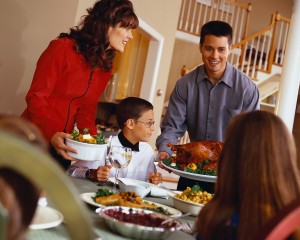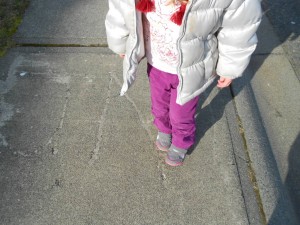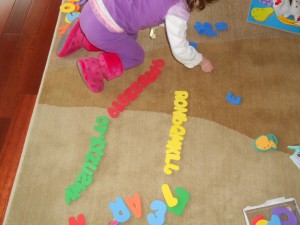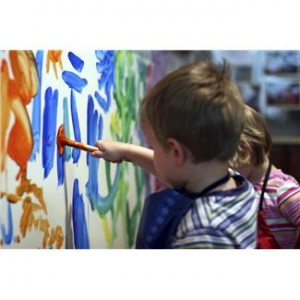Parents and caregivers often ask what young children need to know before kindergarten; this is the 17th in a series of blog posts on kindergarten readiness and early learning basics. No matter the age of your little one, this will give you a general picture of what to do as your child’s very first teacher.
Kindergarten readiness fun and learning can happen anytime, even holidays. And a great deal of learning happens using language. Somehow, even though no one ever tells us, we figure out that language is a system of sounds. These sounds can be taken apart and put back together, kind of like a puzzle. The word pie is really 2 sounds, the “puh” and the “eye”. Words like tie, spy, my, bye, guy, hi, have the same “eye” sound but start with a different one. After reading lots of books to children with words that rhyme, the brain connections form, and kids gradually begin to expect words that sound the same. About the age of 4, they are able to guess what a word might be in a story. For instance, if they hear Jack and JILL went up the…they may be able to say HILL.
This skill of hearing and using sound bits is called phonological awareness. For it to develop, children need to hear lots and lots of words from books, stories, songs, and conversations. Besides words that rhyme, there are words that start with the same sound. Like pie and pants and purple. Or, if there will be turkey at your house, like turkey and two and tickle.
Having fun with words can piggy-back with other activities. When setting the table you could say “Oh, said the fish, here is another dish. Oh, said the moon, here is a ____.” If your child is not yet able to finish that with the word spoon, you can. Your child will still hear the rhyme and add it to the brain bank. When peeling potatoes notice that they start with the same sound and share that with your little one. What other learning and fun, with words and sounds, can you dish up for your little one?



